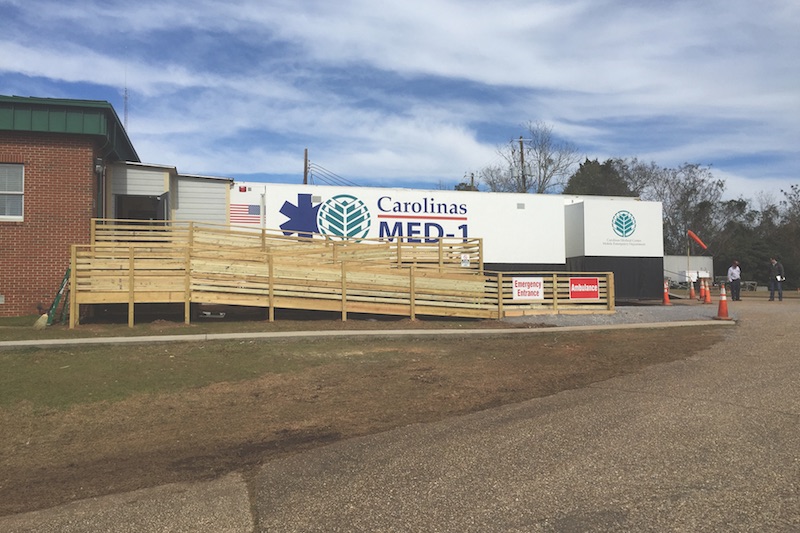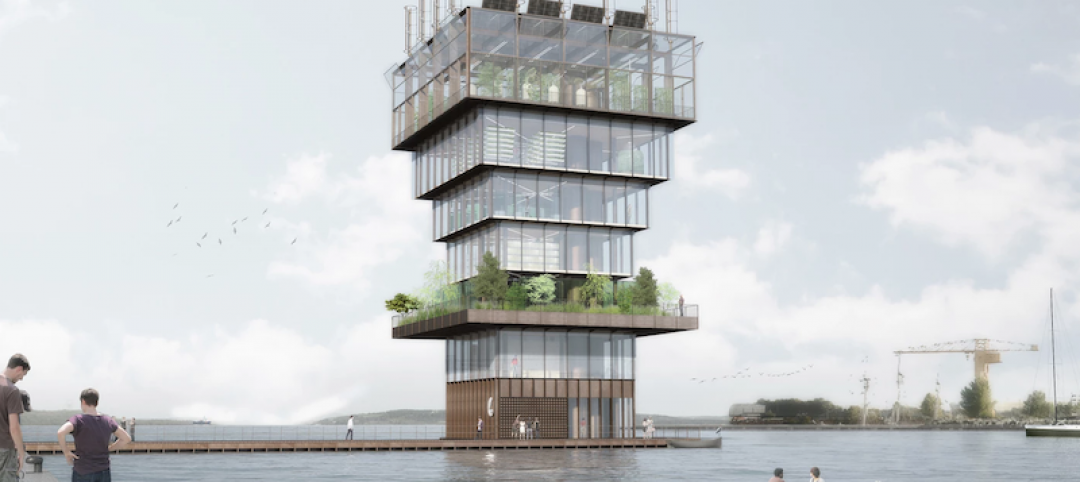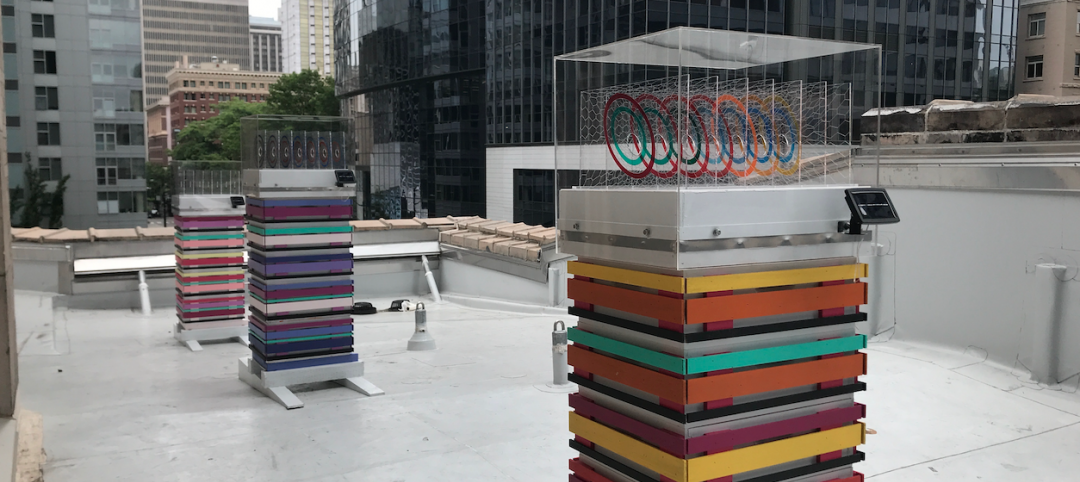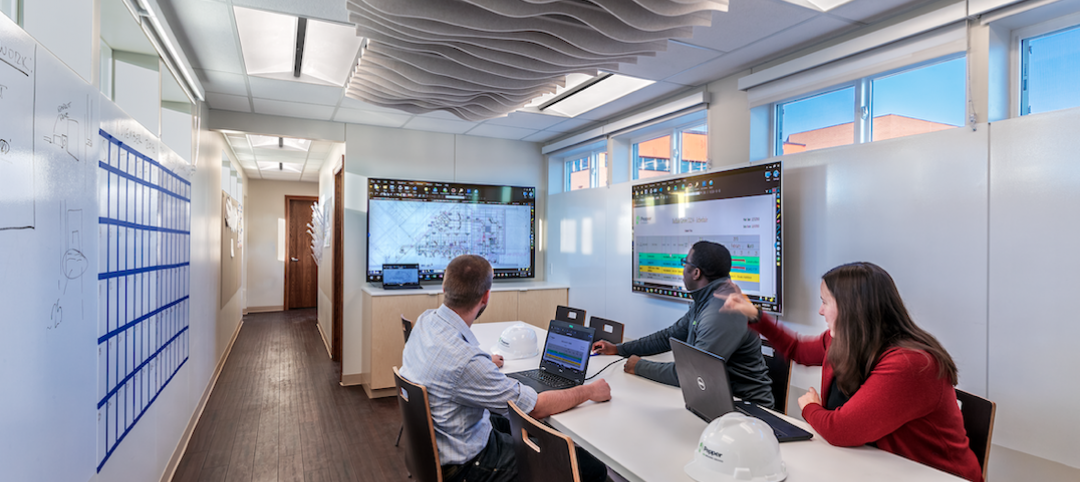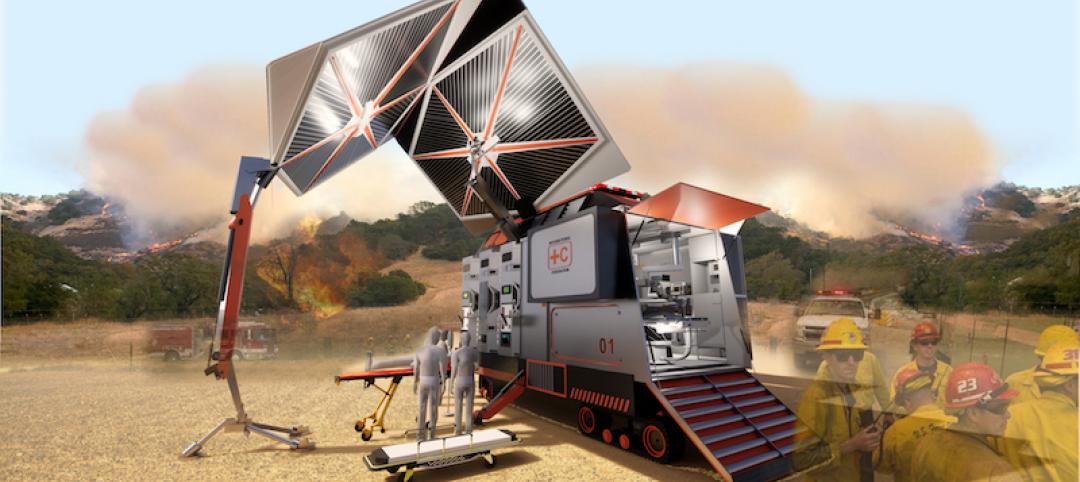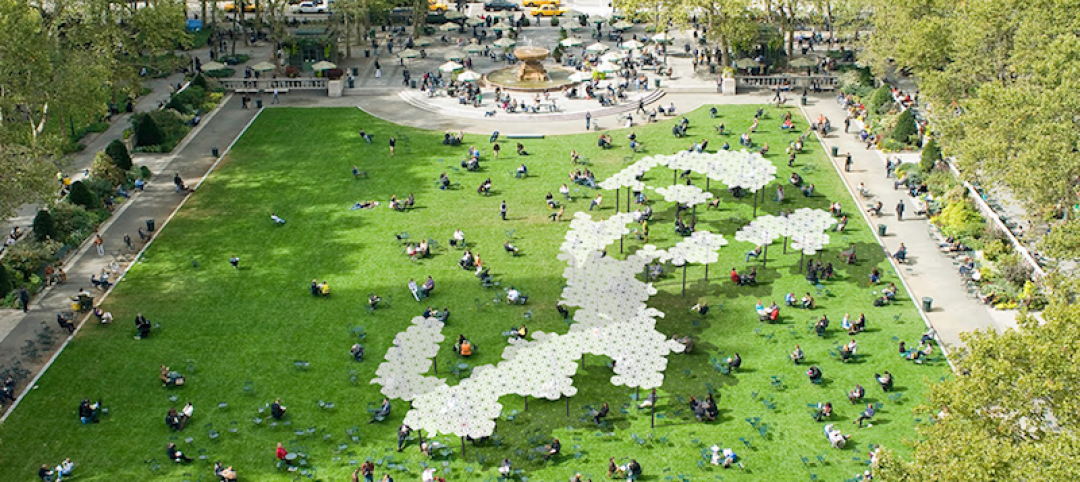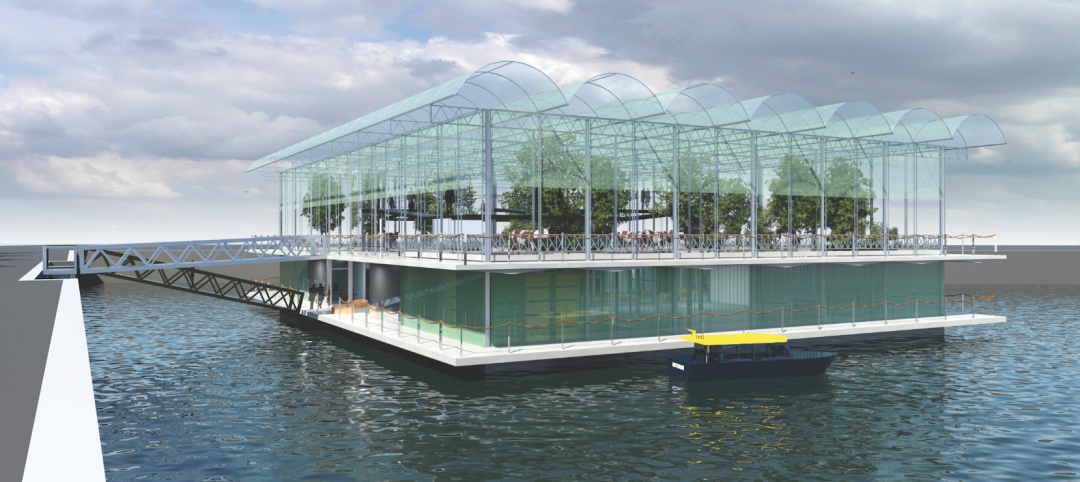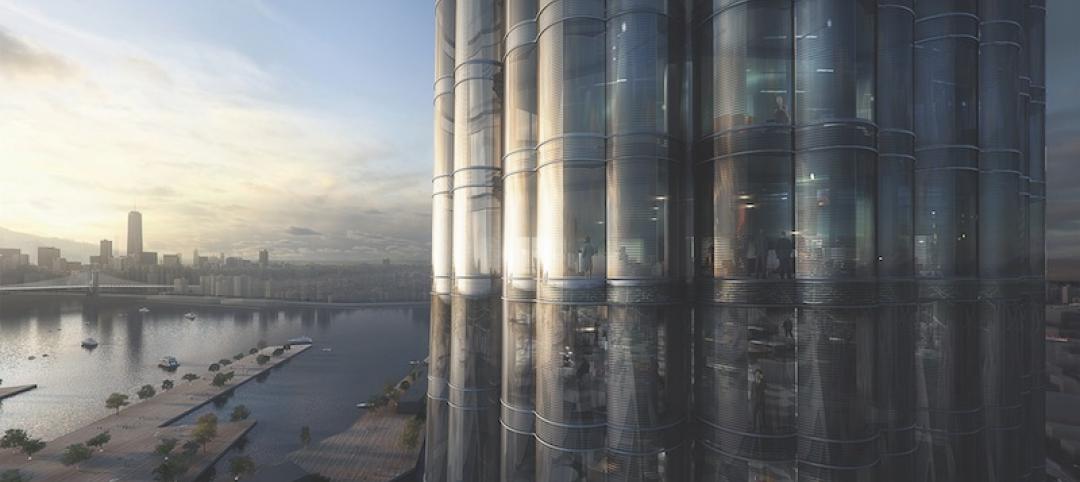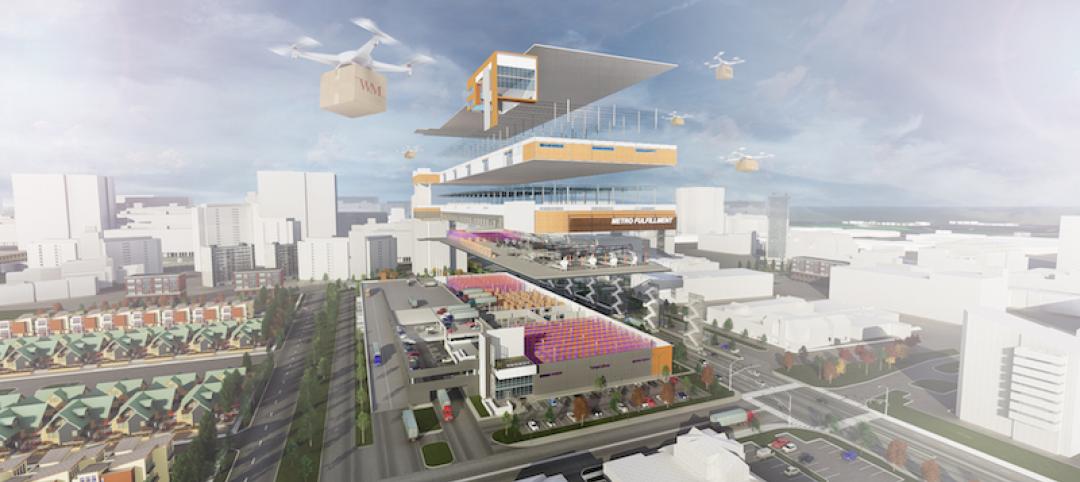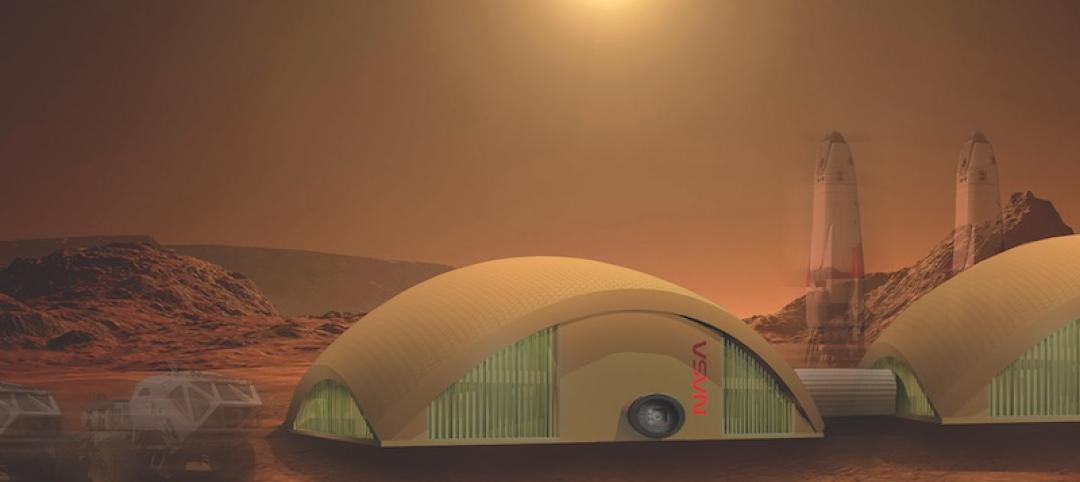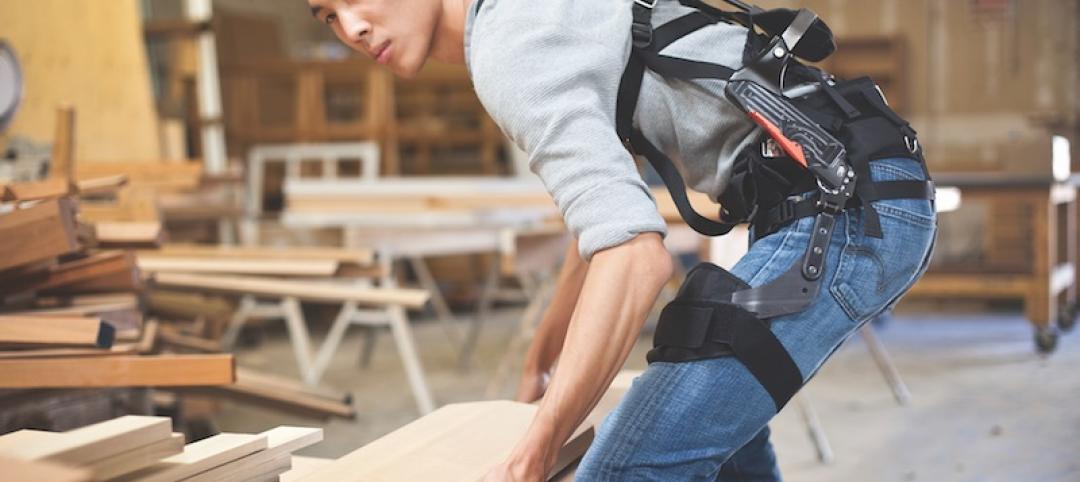Grove Hill (Ala.) Memorial Hospital is adding a new $3.75 million, 4,500-sf emergency department that will house nine exam and treatment rooms, a two-bay trauma room, expanded waiting area, and direct access to operating rooms within the hospital.
During several months of construction that started last November, Grove Hill couldn’t shut down its existing ED because it’s the only one serving Clark County. And the hospital’s administration determined that converting unutilized space into a temporary ED would be too costly.
The project’s architect, Paul Fridl of Goodwyn, Mills and Cawood, suggested an economical alternative: a mobile ED. The hospital contacted Carolina HealthCare Systems, whose Carolinas MED-1 unit for more than a decade has provided temporary patient care after natural disasters or when a hospital’s infrastructure breaks down.
MED-1 travels as two 53-foot tractor trailers. It is completely self-sustaining for the first 72 hours, using generators or local shore power.
The mobile unit comprises a 1,000-sf patient care component that is equipped and staffed to manage minor to severe emergency medical conditions; six critical-care beds with built-in cardiac monitors; full trauma surgery and anesthesia capabilities; ED acute care beds; and a dental/EENT chair. Other medical equipment—like X-ray, ultrasound, I-stat laboratory, and IV pumps—are available.
Grove Hill would prove to be MED-1’s longest stint: more than seven months. This was also the first time the mobile unit would be set up as a “permanent temporary” ED, says Brian Hale, Senior Project Manager with Robins & Morton, the GC and construction manager on the project.
Robins & Morton built a lighted, fire-sprinkler-equipped vestibule, with fire and smoke detectors, to connect the mobile unit to the existing hospital. It hooked MED-1 up to the hospital’s water supply, and replaced the ramps.
This had never been done before in Alabama, and “there were no applicable codes,” says Hale. It required creative problem-solving to overcome issues like how to wire MED-1 to the local power grid.
Read about more innovations from BD+C's 2016 Great Solutions Report
Related Stories
Sustainability | Feb 20, 2019
Studio NAB’s Superfarm project creates an entire ecosystem in an urban environment
The Superfarm will go beyond what vertical farms typically produce.
Great Solutions | Feb 7, 2019
An apiary for the sanctuary
A Seattle events venue, The Sanctuary, has a roof that is literally a hive of sustainability.
Great Solutions | Jan 2, 2019
Net zero construction trailer brings health and wellness to the jobsite
As AEC firms scramble to upgrade their offices to maximize occupant wellness and productivity, Pepper Construction asks, What about the jobsite office?
Great Solutions | Dec 12, 2018
A modular, scalable mobile hospital can quickly respond to natural disasters and crises
CallisonRTKL’s design combines artificial intelligence, electric vehicle technology, and the latest in medical equipment.
Great Solutions | Nov 8, 2018
Public canopy system can be reconfigured by drones on the fly
The installation combines cyber-physical building materials constructed from lightweight carbon fiber filament with a collection of autonomous drones.
Great Solutions | Sep 28, 2018
When pigs fly? How about when cows float?
Merwehaven Harbor in Rotterdam will be home to the world’s first floating farm.
Great Solutions | Sep 17, 2018
Curtain walls go circadian
Catering to our natural circadian rhythm is a task designers are taking to heart.
Great Solutions | Aug 8, 2018
Warehouses rise up to serve downtown
Multistory industrial buildings provide the best chance at keeping up with the rapid growth of e-commerce in North America.
Great Solutions | Jul 13, 2018
Fungus may be the key to colonizing mars
A Cleveland-based architect and a NASA Ames researcher have a novel idea for building on Mars.
Great Solutions | May 14, 2018
It’s not Ripley’s loader, but this industrial exoskeleton makes physical labor a breeze
SuitX modules can be used separately or combined to form a full-body exoskeleton.


